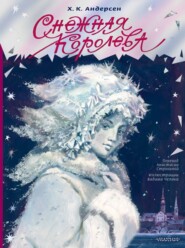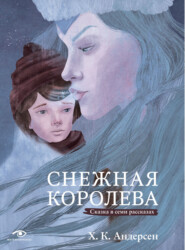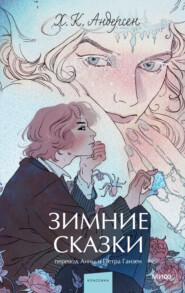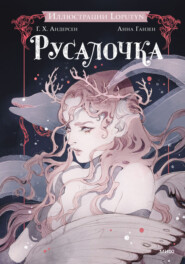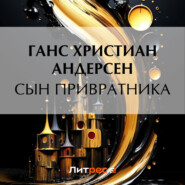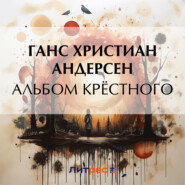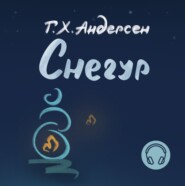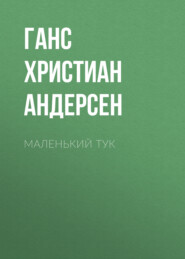По всем вопросам обращайтесь на: info@litportal.ru
(©) 2003-2024.
✖
Hans Andersen's Fairy Tales. First Series
Настройки чтения
Размер шрифта
Высота строк
Поля
"Yes, so it may; but to-night is the hundred-and-first wedding, and when that has taken place it must be the last; therefore this is to be extremely beautiful. Only look."
Hjalmar looked at the table, and there stood the little cardboard dolls' house, with lights in all the windows, and drawn up before it were the tin soldiers, presenting arms.
The bridal pair were seated on the floor, leaning against the leg of the table, looking very thoughtful and with good reason. Then Ole-Luk-Oie, dressed up in grandmother's black gown, married them.
As soon as the ceremony was concluded all the furniture in the room joined in singing a beautiful song which had been composed by the lead pencil, and which went to the melody of a military tattoo:
"Waft, gentle breeze, our kind farewell
To the tiny house where the bride folks dwell.
With their skin of kid leather fitting so well,
They are straight and upright as a tailor's ell.
Hurrah! hurrah! for beau and belle.
Let echo repeat our kind farewell."
And now came the presents; but the bridal pair had nothing to eat, for love was to be their food.
"Shall we go to a country house, or travel?" asked the bridegroom.
They consulted the swallow, who had traveled so far, and the old hen in the yard, who had brought up five broods of chickens.
And the swallow talked to them of warm countries where the grapes hang in large clusters on the vines and the air is soft and mild, and about the mountains glowing with colors more beautiful than we can think of.
"But they have no red cabbage such as we have," said the hen. "I was once in the country with my chickens for a whole summer. There was a large sand pit in which we could walk about and scratch as we liked. Then we got into a garden in which grew red cabbage. Oh, how nice it was! I cannot think of anything more delicious."
"But one cabbage stalk is exactly like another," said the swallow; "and here we often have bad weather."
"Yes, but we are accustomed to it," said the hen.
"But it is so cold here, and freezes sometimes."
"Cold weather is good for cabbages," said the hen; "besides, we do have it warm here sometimes. Four years ago we had a summer that lasted more than five weeks, and it was so hot one could scarcely breathe. And then in this country we have no poisonous animals, and we are free from robbers. He must be a blockhead, who does not consider our country the finest of all lands. He ought not to be allowed to live here." And then the hen wept very much and said: "I have also traveled. I once went twelve miles in a coop, and it was not pleasant traveling at all."
"The hen is a sensible woman," said the doll Bertha. "I don't care for traveling over mountains, just to go up and come down again. No, let us go to the sand pit in front of the gate and then take a walk in the cabbage garden."
And so they settled it.
SATURDAY
"Am I to hear any more stories?" asked little Hjalmar, as soon as Ole-Luk-Oie had sent him to sleep.
"We shall have no time this evening," said he, spreading out his prettiest umbrella over the child. "Look at these Chinese people." And then the whole umbrella appeared like a large china bowl, with blue trees and pointed bridges upon which stood little Chinamen nodding their heads.
"We must make all the world beautiful for to-morrow morning," said Ole-Luk-Oie, "for it will be a holiday; it is Sunday. I must now go to the church steeple and see if the little sprites who live there have polished the bells so that they may sound sweetly; then I must go into the fields and see if the wind has blown the dust from the grass and the leaves; and the most difficult task of all which I have to do is to take down all the stars and brighten them up. I have to number them first before I put them in my apron, and also to number the places from which I take them, so that they may go back into the right holes, or else they would not remain and we should have a number of falling stars, for they would all tumble down one after another."
"Hark ye, Mr. Luk-Oie!" said an old portrait which hung on the wall of Hjalmar's bedroom. "Do you know me? I am Hjalmar's great-grandfather. I thank you for telling the boy stories, but you must not confuse his ideas. The stars cannot be taken down from the sky and polished; they are spheres like our earth, which is a good thing for them."
"Thank you, old great-grandfather," said Ole-Luk-Oie. "I thank you. You may be the head of the family, as no doubt you are, and very old, but I am older still. I am an ancient heathen. The old Romans and Greeks named me the Dream God. I have visited the noblest houses, – yes, and I continue to do so, – still I know how to conduct myself both to high and low, and now you may tell the stories yourself"; and so Ole-Luk-Oie walked off, taking his umbrellas with him.
"Well, well, one is never to give an opinion, I suppose," grumbled the portrait. And it woke Hjalmar.
SUNDAY
"Good evening," said Ole-Luk-Oie.
Hjalmar nodded, and then sprang out of bed and turned his great-grandfather's portrait to the wall so that it might not interrupt them as it had done yesterday. "Now," said he, "you must tell me some stories about five green peas that lived in one pod, or of the chickseed that courted the chickweed, or of the Darning-needle who acted so proudly because she fancied herself an embroidery needle."
"You may have too much of a good thing," said Ole-Luk-Oie. "You know that I like best to show you something, so I will show you my brother. He is also called Ole-Luk-Oie, but he never visits any one but once, and when he does come he takes him away on his horse and tells him stories as they ride along.
"He knows only two stories. One of these is so wonderfully beautiful that no one in the world can imagine anything at all like it, but the other it would be impossible to describe."
Then Ole-Luk-Oie lifted Hjalmar up to the window. "There, now you can see my brother, the other Ole-Luk-Oie; he is also called Death. You see he is not so bad as they represent him in picture books. There he is a skeleton, but here his coat is embroidered with silver, and he wears the splendid uniform of a hussar, and a mantle of black velvet flies behind him over the horse. Look, how he gallops along."
Hjalmar saw that as this Ole-Luk-Oie rode on he lifted up old and young and carried them away on his horse. Some he seated in front of him and some behind, but always inquired first, "How stands the record book?"
"Good," they all answered.
"Yes, but let me see for myself," he replied, and they were obliged to give him the books. Then all those who had "Very good" or "Exceedingly good" came in front of the horse and heard the beautiful story, while those who had "Middling" or "Fairly good" in their books were obliged to sit behind. They cried and wanted to jump down from the horse, but they could not get free, for they seemed fastened to the seat.
"Why, Death is a most splendid Luk-Oie," said Hjalmar. "I am not in the least afraid of him."
"You need have no fear of him," said Ole-Luk-Oie; "but take care and keep a good conduct book."
"Now I call that very instructive," murmured the great-grandfather's portrait. "It is useful sometimes to express an opinion." So he was quite satisfied.
These are some of the doings and sayings of Ole-Luk-Oie. I hope he may visit you himself this evening and relate some more.
THE MONEY BOX
IN a nursery where a number of toys lay scattered about, a money box stood on the top of a very high wardrobe. It was made of clay in the shape of a pig and had been bought of the potter. In the back of the pig was a slit, and this slit had been enlarged with a knife so that dollars, or even crown pieces, might slip through – and indeed there were two in the box, besides a number of pence. The money-pig was stuffed so full that it could no longer rattle, which is the highest state of perfectness to which a money-pig can attain.
There he stood upon the cupboard, high and lofty, looking down upon everything else in the room. He knew very well that he had enough inside himself to buy up all the other toys, and this gave him a very good opinion of his own value.
The rest thought of this fact also, although they did not express it, there were so many other things to talk about. A large doll, still handsome (though rather old, for her neck had been mended) lay inside one of the drawers, which was partly open. She called out to the others, "Let us have a game at being men and women; that is something worth playing at."
Upon this there was a great uproar; even the engravings which hung in frames on the wall turned round in their excitement and showed that they had a wrong side to them, although they had not the least intention of exposing themselves in this way or of objecting to the game.
It was late at night, but as the moon shone through the windows, they had light at a cheap rate. And as the game was now to begin, all were invited to take part in it, even the children's wagon, which certainly belonged among the coarser playthings. "Each has its own value," said the wagon; "we cannot all be noblemen; there must be some to do the work."
The money-pig was the only one who received a written invitation. He stood so high that they were afraid he would not accept a verbal message. But in his reply he said if he had to take a part he must enjoy the sport from his own home; they were to arrange for him to do so. And so they did.
The little toy theater was therefore put up in such a way that the money-pig could look directly into it. Some wanted to begin with a comedy and afterwards to have a tea party and a discussion for mental improvement, but they began with the latter first.
The rocking-horse spoke of training and races; the wagon, of railways and steam power – for these subjects belonged to each of their professions, and it was right they should talk of them. The clock talked politics – "Tick, tick." He professed to know what was the time of the day, but there was a whisper that he did not go correctly. The bamboo cane stood by, looking stiff and proud (he was vain of his brass ferrule and silver top), and on the sofa lay two worked cushions, pretty but stupid.
When the play at the little theater began, the rest sat and looked on; they were requested to applaud and stamp, or crack, whenever they felt gratified with what they saw. The riding whip said he never cracked for old people, only for the young – those who were not yet married. "I crack for everybody," said the nutcracker.
"Yes, and a fine noise you make," thought the audience as the play went on.
It was not worth much, but it was very well played, and all the actors turned their painted sides to the audience, for they were made to be seen only on one side. The acting was wonderful, excepting that sometimes the actors came out beyond the lamps, because the wires were a little too long.
Hjalmar looked at the table, and there stood the little cardboard dolls' house, with lights in all the windows, and drawn up before it were the tin soldiers, presenting arms.
The bridal pair were seated on the floor, leaning against the leg of the table, looking very thoughtful and with good reason. Then Ole-Luk-Oie, dressed up in grandmother's black gown, married them.
As soon as the ceremony was concluded all the furniture in the room joined in singing a beautiful song which had been composed by the lead pencil, and which went to the melody of a military tattoo:
"Waft, gentle breeze, our kind farewell
To the tiny house where the bride folks dwell.
With their skin of kid leather fitting so well,
They are straight and upright as a tailor's ell.
Hurrah! hurrah! for beau and belle.
Let echo repeat our kind farewell."
And now came the presents; but the bridal pair had nothing to eat, for love was to be their food.
"Shall we go to a country house, or travel?" asked the bridegroom.
They consulted the swallow, who had traveled so far, and the old hen in the yard, who had brought up five broods of chickens.
And the swallow talked to them of warm countries where the grapes hang in large clusters on the vines and the air is soft and mild, and about the mountains glowing with colors more beautiful than we can think of.
"But they have no red cabbage such as we have," said the hen. "I was once in the country with my chickens for a whole summer. There was a large sand pit in which we could walk about and scratch as we liked. Then we got into a garden in which grew red cabbage. Oh, how nice it was! I cannot think of anything more delicious."
"But one cabbage stalk is exactly like another," said the swallow; "and here we often have bad weather."
"Yes, but we are accustomed to it," said the hen.
"But it is so cold here, and freezes sometimes."
"Cold weather is good for cabbages," said the hen; "besides, we do have it warm here sometimes. Four years ago we had a summer that lasted more than five weeks, and it was so hot one could scarcely breathe. And then in this country we have no poisonous animals, and we are free from robbers. He must be a blockhead, who does not consider our country the finest of all lands. He ought not to be allowed to live here." And then the hen wept very much and said: "I have also traveled. I once went twelve miles in a coop, and it was not pleasant traveling at all."
"The hen is a sensible woman," said the doll Bertha. "I don't care for traveling over mountains, just to go up and come down again. No, let us go to the sand pit in front of the gate and then take a walk in the cabbage garden."
And so they settled it.
SATURDAY
"Am I to hear any more stories?" asked little Hjalmar, as soon as Ole-Luk-Oie had sent him to sleep.
"We shall have no time this evening," said he, spreading out his prettiest umbrella over the child. "Look at these Chinese people." And then the whole umbrella appeared like a large china bowl, with blue trees and pointed bridges upon which stood little Chinamen nodding their heads.
"We must make all the world beautiful for to-morrow morning," said Ole-Luk-Oie, "for it will be a holiday; it is Sunday. I must now go to the church steeple and see if the little sprites who live there have polished the bells so that they may sound sweetly; then I must go into the fields and see if the wind has blown the dust from the grass and the leaves; and the most difficult task of all which I have to do is to take down all the stars and brighten them up. I have to number them first before I put them in my apron, and also to number the places from which I take them, so that they may go back into the right holes, or else they would not remain and we should have a number of falling stars, for they would all tumble down one after another."
"Hark ye, Mr. Luk-Oie!" said an old portrait which hung on the wall of Hjalmar's bedroom. "Do you know me? I am Hjalmar's great-grandfather. I thank you for telling the boy stories, but you must not confuse his ideas. The stars cannot be taken down from the sky and polished; they are spheres like our earth, which is a good thing for them."
"Thank you, old great-grandfather," said Ole-Luk-Oie. "I thank you. You may be the head of the family, as no doubt you are, and very old, but I am older still. I am an ancient heathen. The old Romans and Greeks named me the Dream God. I have visited the noblest houses, – yes, and I continue to do so, – still I know how to conduct myself both to high and low, and now you may tell the stories yourself"; and so Ole-Luk-Oie walked off, taking his umbrellas with him.
"Well, well, one is never to give an opinion, I suppose," grumbled the portrait. And it woke Hjalmar.
SUNDAY
"Good evening," said Ole-Luk-Oie.
Hjalmar nodded, and then sprang out of bed and turned his great-grandfather's portrait to the wall so that it might not interrupt them as it had done yesterday. "Now," said he, "you must tell me some stories about five green peas that lived in one pod, or of the chickseed that courted the chickweed, or of the Darning-needle who acted so proudly because she fancied herself an embroidery needle."
"You may have too much of a good thing," said Ole-Luk-Oie. "You know that I like best to show you something, so I will show you my brother. He is also called Ole-Luk-Oie, but he never visits any one but once, and when he does come he takes him away on his horse and tells him stories as they ride along.
"He knows only two stories. One of these is so wonderfully beautiful that no one in the world can imagine anything at all like it, but the other it would be impossible to describe."
Then Ole-Luk-Oie lifted Hjalmar up to the window. "There, now you can see my brother, the other Ole-Luk-Oie; he is also called Death. You see he is not so bad as they represent him in picture books. There he is a skeleton, but here his coat is embroidered with silver, and he wears the splendid uniform of a hussar, and a mantle of black velvet flies behind him over the horse. Look, how he gallops along."
Hjalmar saw that as this Ole-Luk-Oie rode on he lifted up old and young and carried them away on his horse. Some he seated in front of him and some behind, but always inquired first, "How stands the record book?"
"Good," they all answered.
"Yes, but let me see for myself," he replied, and they were obliged to give him the books. Then all those who had "Very good" or "Exceedingly good" came in front of the horse and heard the beautiful story, while those who had "Middling" or "Fairly good" in their books were obliged to sit behind. They cried and wanted to jump down from the horse, but they could not get free, for they seemed fastened to the seat.
"Why, Death is a most splendid Luk-Oie," said Hjalmar. "I am not in the least afraid of him."
"You need have no fear of him," said Ole-Luk-Oie; "but take care and keep a good conduct book."
"Now I call that very instructive," murmured the great-grandfather's portrait. "It is useful sometimes to express an opinion." So he was quite satisfied.
These are some of the doings and sayings of Ole-Luk-Oie. I hope he may visit you himself this evening and relate some more.
THE MONEY BOX
IN a nursery where a number of toys lay scattered about, a money box stood on the top of a very high wardrobe. It was made of clay in the shape of a pig and had been bought of the potter. In the back of the pig was a slit, and this slit had been enlarged with a knife so that dollars, or even crown pieces, might slip through – and indeed there were two in the box, besides a number of pence. The money-pig was stuffed so full that it could no longer rattle, which is the highest state of perfectness to which a money-pig can attain.
There he stood upon the cupboard, high and lofty, looking down upon everything else in the room. He knew very well that he had enough inside himself to buy up all the other toys, and this gave him a very good opinion of his own value.
The rest thought of this fact also, although they did not express it, there were so many other things to talk about. A large doll, still handsome (though rather old, for her neck had been mended) lay inside one of the drawers, which was partly open. She called out to the others, "Let us have a game at being men and women; that is something worth playing at."
Upon this there was a great uproar; even the engravings which hung in frames on the wall turned round in their excitement and showed that they had a wrong side to them, although they had not the least intention of exposing themselves in this way or of objecting to the game.
It was late at night, but as the moon shone through the windows, they had light at a cheap rate. And as the game was now to begin, all were invited to take part in it, even the children's wagon, which certainly belonged among the coarser playthings. "Each has its own value," said the wagon; "we cannot all be noblemen; there must be some to do the work."
The money-pig was the only one who received a written invitation. He stood so high that they were afraid he would not accept a verbal message. But in his reply he said if he had to take a part he must enjoy the sport from his own home; they were to arrange for him to do so. And so they did.
The little toy theater was therefore put up in such a way that the money-pig could look directly into it. Some wanted to begin with a comedy and afterwards to have a tea party and a discussion for mental improvement, but they began with the latter first.
The rocking-horse spoke of training and races; the wagon, of railways and steam power – for these subjects belonged to each of their professions, and it was right they should talk of them. The clock talked politics – "Tick, tick." He professed to know what was the time of the day, but there was a whisper that he did not go correctly. The bamboo cane stood by, looking stiff and proud (he was vain of his brass ferrule and silver top), and on the sofa lay two worked cushions, pretty but stupid.
When the play at the little theater began, the rest sat and looked on; they were requested to applaud and stamp, or crack, whenever they felt gratified with what they saw. The riding whip said he never cracked for old people, only for the young – those who were not yet married. "I crack for everybody," said the nutcracker.
"Yes, and a fine noise you make," thought the audience as the play went on.
It was not worth much, but it was very well played, and all the actors turned their painted sides to the audience, for they were made to be seen only on one side. The acting was wonderful, excepting that sometimes the actors came out beyond the lamps, because the wires were a little too long.






